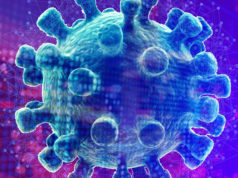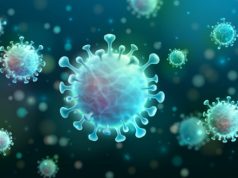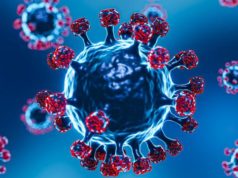[Updated] The Government will be holding a press conference at approximately 6.00pm this evening [Jan 19] to update the public on Covid-19.
Update 7.49pm: Minister Kim Wilson’s full statement follows below:
There were 657 test results received by the Ministry of Health since the last update and 1 was positive for COVID-19.
The new case is classified as imported with details as follows:
- 1 resident who arrived on AA 308 from Miami on 17 January 2021 and tested positive on their arrival test
There have also been 5 recoveries.
Bermuda now has 684 total confirmed positive cases. Their status is as follows.
There are 69 active cases, of which
- 63 are under public health monitoring and
- 6 are in hospital with none in critical care;
- a total of 603 have recovered, and
- the total deceased remains at 12.
The mean age of all confirmed positive cases is 43 years [median: 40 years] and the ages range from less than 1 year to greater than 100 years.
The mean age of all currently active cases is 47 years [median: 47 years] and the ages range from less than 20 years [age group: 10-19 years] to greater than 80 years [age group: 80-100 years].
The mean age of all currently hospitalized cases is 61 years [median: 69 years] and the ages range from less than 30 years [age group: 20-29 years] to greater than 80 years [age group: 80-100 years].
The mean age of all deceased cases is 75 years [median: 77 years] and the ages range from less than 60 years [age group: 50-59 years] to greater than 80 years [age group: 80-100 years].
The source of all cases is as follows:
- 195 are Imported
- 472 are classified as local transmission of which:
- 392 are Local transmission with known contact/source and
- 80 are Local transmission with an unknown contact/source
- 17 are Under Investigation
As investigations proceed, transmission categories may change. Today’s update has 1 case moving from under investigation to local transmission with known contact/source.
Of the over 150,000 test results reported, the mean age of all persons tested is 43 years [median: 42 years] and the ages range from less than 1 year to greater than 100 years.
The seven-day average of our real time reproduction number is less than 1 [0.35] and Bermuda’s current country status is “Clusters of Cases”.
I will now provide an update on the COVID-19 vaccination programme. As the Premier mentioned, the ministry started the distribution of the Pfizer-BioNTech vaccine on Monday 11 January. For the week of 11 January – 16 January, there have been a total of 1,665 vaccines administered.
738 of these vaccines were administered by the Bermuda Hospitals Board during their first vaccination clinic held at the King Edward Memorial Hospital. The individuals vaccinated were part of Phase 1[A] priority group as outlined in the ministry’s Vaccine Allocation Strategy and included both frontline healthcare workers and residents in the Hospital’s long term care facility.
Of the remaining 927 vaccines, 40 were administered to the elderly, extremely clinically vulnerable, and clinically vulnerable at nursing care facilities and 887 were given to the elderly and frontline healthcare and essential service workers at the Vaccination Centre at the Police Recreation Club.
More particularly, of the vaccines administered so far, the breakdown is as follows:
- 58% female, and,
- 42% male, and of this
- 32% were essential service workers,
- 27% were health workers,
- 22% were not categorized by occupation [elderly]
- 19% were ‘Other’, as in retired, unemployed or care-givers.
As has been reported, when we initially opened the Vaccination Hotline, we were overwhelmed with the number of residents calling to express their interest to be vaccinated. As a result, we increased the number of staff to answer the calls and revamped the infrastructure for these staff.
We also implemented an online form which allows residents to register their interest easily, efficiently and conveniently. I am happy to report that the number of residents who have registered their interest to date is 7,729. The ministry would like to thank those residents who have already registered and remind residents that registering your interest does not guarantee you an appointment, as all submissions will be prioritised based on an assessment by our medical personnel.
The breakdown of those registering their interest is as follows:
- 51% female
- 49% male, further broken down as
- 63% White
- 14% Black
- 9% Mixed/Other
- 14% Race not stated [as the initial online form did not have the field]
For those residents who haven’t registered as of yet but would like to, we recommend using the online registration form which can be found at https://forms.gov.bm/covidvaccine. As I have said before, when you submit your registration form, you will receive an auto-generated submission receipt. Your submission will be kept on file, and you will be contacted as appointments become available. Every submission will be replied to, and there is no need for you to re-submit. We ask that people who registered, whether via the online form or by email, to please be patient as we work through all submissions and allocate the appointments.
The process for the medical risk assessment is a manual one done by the medical team – and this takes time. At present, eligibility is a combination of age, medical history and occupation. We are focused on those who are in Priority Groups 1[A] and 1[B] but recognize that people can be in multiple categories and have medical vulnerabilities which are not evident to the naked eye.
Following our initial allocation strategy, Group 1[A] includes people who are 80 years or older, care home residents, frontline health care and frontline essential workers. Group 1[B] includes people who are 65 years or older and people who are extremely vulnerable, such as those undergoing chemotherapy or with severe asthma or COPD.
During the first week, there were many healthcare workers and frontline essential service workers who received the vaccine at the Vaccination Centre. These were workers who were largely registered as a ‘bloc’ through their place of employment – for example, the police, firefighers and ports of entry staff. As we tackle the backlog of registrations received online or those emails which remain, we are moving our focus this week to increase the number of high risk and elderly persons receiving the vaccine.
As the vaccine has strict quality control standards and must be administered within a specific time period, we must closely monitor the doses administered throughout the day. So that you know, once it is thawed, a vaccine batch must be used within five days; and a vial, which holds five doses, must be fully used once opened and mixed. Our mandate is to ensure we do not waste a single dose
On the question of some persons receiving the vaccine before others, as I said before, this decision is based on a risk assessment done by the medical team and in accordance with the information provided by the resident.
Bermuda does not yet have a registry that provides information on the persons with medical conditions that would help validate all of the information received. This means that we have to rely on self-reporting in cases where there is no doctor’s note.
As we get to the end of each day’s vaccination session, we only have a limited time to administer the remaining doses. That is when we contact persons who are eligible for vaccination in Phase 1 and who can attend the Vaccination Centre in a few minutes. That is how we avoid wastage.
In the coming days and weeks, the ministry will continue to distribute vaccine doses to the rest homes and long term care facilities. We will continue administering vaccines at the Vaccination Centre to those who match Group 1[A] and Group 1[B] profiles who have registered their interest.
We are also in the process of identifying added opportunities to administer more vaccinations before the arrival of the next batch of vaccines. This will involve additional locations and or additional shifts.
In short, we are seeking to dramatically increase the number of vaccines we can administer daily and provide residents with more options to get vaccinated as quickly as possible. This increase in our capacity will also see us moving into Phase 2 [persons 50 and older, vulnerable people, essential travellers and specific groups such as unsheltered persons] and, eventually, Phase 3, when we can offer the vaccine to everyone.
The aim is to ensure anyone who wants a vaccine can get one.
I also have an update for travellers…
Starting on the 25th of January, travellers in different traveller continuum stages will be changing their wristbands’ colours. So every traveller arriving will receive a red wrist band upon arrival. On day four testing, the red wristband will be changed to orange, and on day eight testing the orange wristband will be changed to a yellow. These changes in colour are related to activities that persons should or should not do as they advance through their testing regime and incubation period.
Travellers are reminded that there are very specific things they cannot do until they are further into their testing regime. For example, no one should be visiting a bar or playing a contact sport until after their day eight negative test.
Examples of the different activities are provided on the “Travellers’ First 14 Days in Bermuda – Guidance for Residents and Visitors” document at https://www.gov.bm/coronavirus-travellers.
We hope the series of coloured wristbands will help travellers know what they can and cannot do during their first 14 days in Bermuda.
Finally… We are at the beginning of our vaccine journey, and it is a journey… so continue to stay safe, Bermuda, and, remember, I wear a mask to protect you; you wear a mask to protect me.
Thank You.










